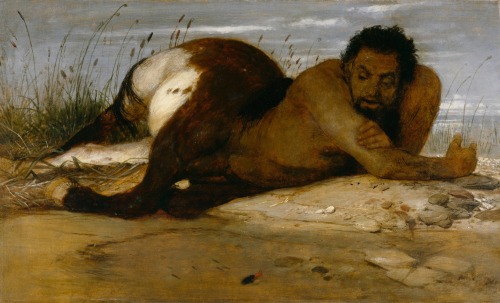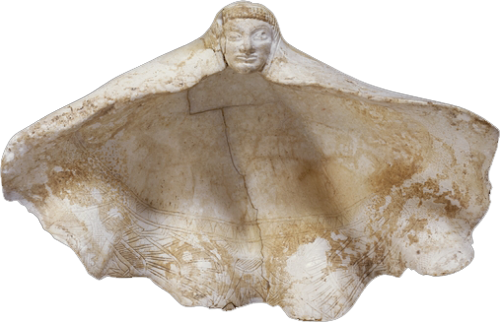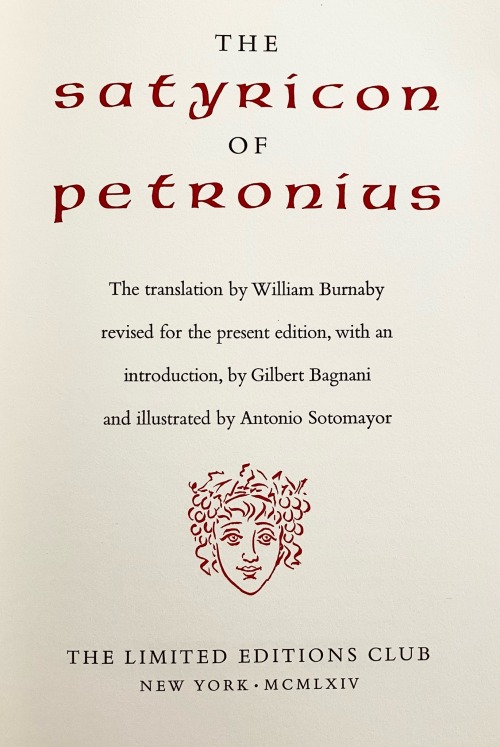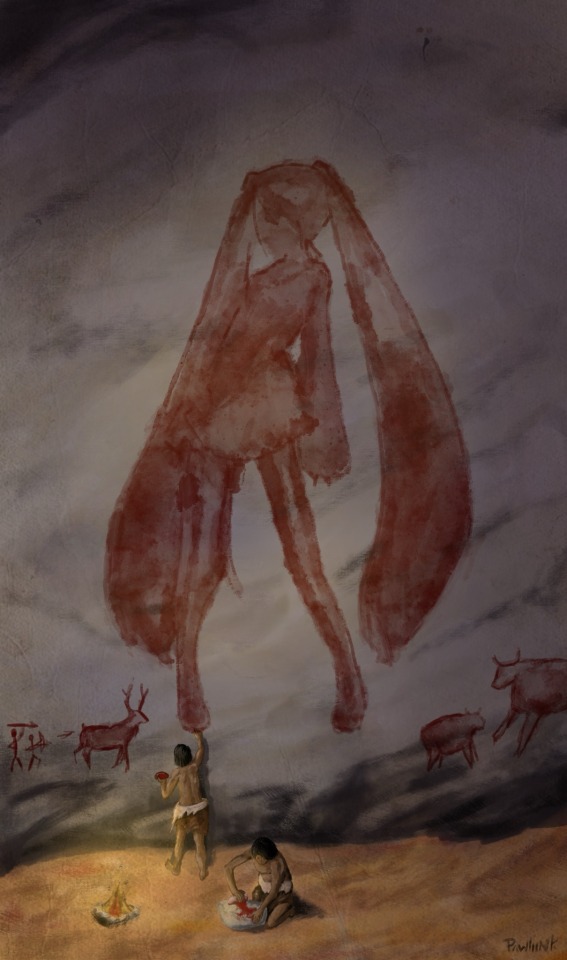Latest Posts by void-of-the-valley - Page 2

Fulvia With the Head of Cicero by Pavel Svedomsky

Centaur Watching Fish by Arnold Böcklin (1878).
I love love love Böcklin’s mythical pieces, they have this sense of realism, and often even sensitivity.
me before making yet another unintelligible post about my current hyperfixations

classical reception is anything that adapts, borrows from, capitalises on, draws upon, bastardises, etc. the ancient world. there is no requirement that it be "good" to "count". gladiator is classical reception. 300 is classical reception. there are classicists who have written whole articles about soap ads. as a dear friend once put it, it's all reception innit.
down with found family. UP with FOUND DIVORCE!!!!!!!!!!!!!

Skull of St. Thomas Aquinas being transported to Fossanova Abbey. Photograph by Daniel Ibanez, 2024

etruscan shell cosmetic container
My T-shirt with the entire text of Borges' theoretical Library of Babel is raising a lot of questions already answered by the shirt, somewhere.
There you are, innocently eating tapas at a restaurant, when you hear boss fight music behind you:

(He'll have the Caesar salad, gracias.)
This 10 meter tall statue of Augustus looms over Puerta Cinegia Gastronómica, a dining/shopping mall in Zaragoza, Spain. Augustus founded the town as Caesaraugusta (hence Zara-agoza) over 2000 years ago as a colony for veterans of the Cantabrian Wars, and many Roman ruins are still visible. I now want to visit Zaragoza.

The Reading (Catullus and Clodia) (Giulio Aristide Sartorio, 1860 - 1932)

this is going to have me on my hands and knees dry heaving
cato the younger pregnant trying to rebirth the republic.
cato mpreg… cato mpreg…. cato pregnant with the death of the republic… trying to cut the evil out of him but it just brings death on faster



A 1964 illustrated Satyricon, translated by William Burnaby and illustrated by Antonio Sotomayor

Big day for the EoG fandom

wretchedly perish then said cicero wednesday
good morning, it is sacrifice day! i woke up at 4:45 (after going to bed at 11 bc i was committed to trying to get up at 6 given how badly the 5 am wake up call has been going) and probably should have tried to go back to sleep but did not so. we're just rolling with it. i am, for the most part, feeling calm and relaxed! i'm going to run to starbucks and get breakfast and tea then do my duolingo and then be ready to start settling down at 8.
The Foundation of the World
People do not wish to know that the whole of human culture is based on the mythic process of conjuring away man's violence by endlessly projecting it upon new victims. All cultures and all religions are built on this foundation, which they then conceal, just as the tomb is built around the dead body that it conceals. Murder calls for the tomb and the tomb is but the prolongation and perpetuation of murder. The tomb-religion amounts to nothing more or less than the becoming visible of the foundations, of religion and culture, of their only reason for existence.
Violence and the Sacred, René Girard (1972), quoted in The Girard Reader, James G. Williams ed. (2000)
“Scared at last the maiden took refuge by the tripods; she drew near to the vast chasm and there stayed; and her bosom for the first time drew in the divine power, which the inspiration of the rock, still active after so many centuries, forced upon her. At last Apollo mastered the breast of the Delphian priestess; as fully as ever in the past, he forced his way into her body, driving out her former thoughts, and bidding her human nature to come forth and leave her heart at his disposal. Frantic she careers about the cave, with her neck under possession; the fillets and garlands of Apollo, dislodged by her bristling hair, she whirls with tossing head through the void spaces of the temple; she scatters the tripods that impede her random course; she boils over with fierce fire, while enduring the wrath of Phoebus. Nor does he ply the whip and goad alone, and dart flame into her vitals: she has to bear the curb as well, and is not permitted to reveal as much as she is suffered to know. All time is gathered up together: all the centuries crowd her breast and torture it; the endless chain of events is revealed; all the future struggles to the light; destiny contends with destiny, seeking to be uttered. The creation of the world and its destruction, the compass of the Ocean and the sum of the sands—all these are before her.”
— Lucan, Pharsalia 5:161ff, tr. J. D. Duff.


revisiting crassus, clodius, and the bona dea scandal! but this time with a new composition and a limited color palette
originally when I drew the first version of this idea, it was back when I thought that crassus would be a week long fixation at most (lmao), and instead he just. took up permanent residence in my mind. it seemed like a fun thing to go back to an earlier idea and see what changed now that I've spent a lot more time with everyone involved in this era!
also the way these two interlocked politically. I am. biting into it.

The Defeat of Rome: Crassus, Carrhae and the Invasion of the East, Gareth C. Sampson

Crassus: the First Tycoon, Peter Stothard

Crassus: A Political Biography, B. A. Marshall


Crassus, Clodius, and Curio in the Year 59 B.C., Robert J Rowland, Jr.
bsky ⭐ pixiv ⭐ pillowfort ⭐ cohost
ranking sophocles plays in order of how real ghosts are in them

This was my art school’s water fountain. Drink from them wolf tiddies

Tartarus © Aurelio Monge
Dudes be like "Et tu Brute"
My brother in Jupiter you were the one about to destroy the Republic




